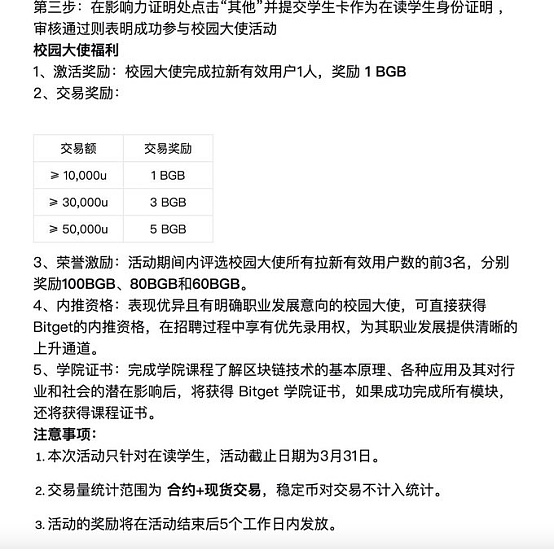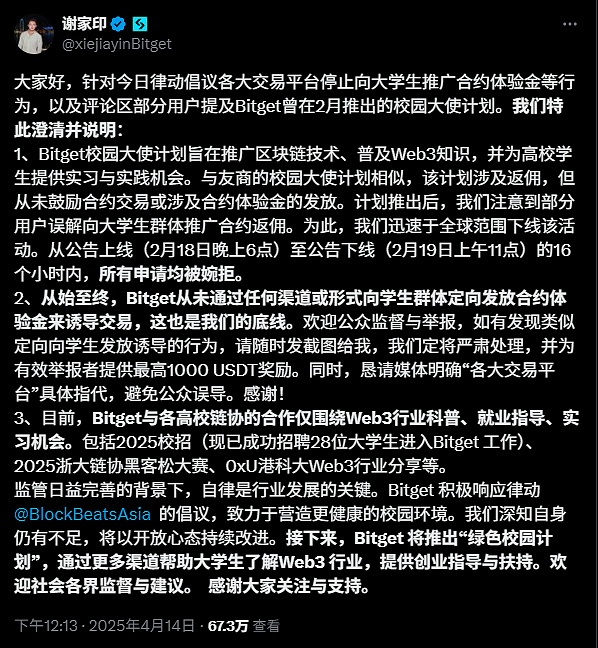With both Trump and Musk admitting defeat, the tariff haze and interest rate game have finally eased, giving the world a break for the time being. The crypto market has ushered in a long-awaited small spring, with Bitcoin soaring to 93,000 US dollars, ETH rising above 1,700 US dollars, and MEME and AI sectors also welcoming a general rise.
On April 17, Liu Honglin, a lawyer at Mankiw Law Firm, published an article disclosing a case involving virtual currency money laundering by college students. In the case, a boy who had just entered his junior year was inadvertently introduced to a new business - purchasing virtual currency on behalf of others - while looking for a part-time job online. The process is very simple. The other party transfers cash into his personal account. Then the boy goes to Hong Kong, buys USDT at a street exchange shop in Hong Kong, and then transfers it back to the wallet address specified by the other party. The other party not only covers the travel expenses, but also gives a reward of 500 to 600.
Black and gray industries have long been hated by everyone, and they often play cat and mouse with the police. However, it is hard to guard against hidden arrows, and open deception is also disgusting. Just recently, the relatively transparent and open trading platform has also set its sights on college students.
It can be seen that the slogans shouted "financial innovation, money-making thinking", but in fact, a series of measures are undoubtedly subtly instilling the so-called "casino culture" into the college students whose values are not yet fully sound and whose economy is not independent. In the context of today's employment difficulties and class solidification, this is a disguised pig-killing scheme with precise placement and longer incubation period.
Although the person who exposed it did not mention which exchange was so bold as to operate in this way, the comment area mentioned an exchange many times -
Bitget. The reason is that in February this year, Bitget launched a campus ambassador program, where college students could get job opportunities by attracting new users, and also receive commissions corresponding to the amount of new users’ transactions. Although the activity ended less than half a day after it was launched amid protests and oppositions from the crypto community, Bitget left a difficult impression on the community, and was frequently identified among the anonymous trading platforms mentioned this time. 
Subsequently, Xie Jiayin, the Chinese head of Bitget, quickly responded and clarified, saying that the Bitget Campus Ambassador Program aims to promote blockchain technology, popularize Web3 knowledge, and provide internship and practice opportunities for college students. It has not distributed contract experience funds to students through any channel or form to induce transactions. In Xie Jiayin's comment area, many people who have participated in the event have expressed their affirmation and clarified the legitimacy of Bitget's activities.

In fact,Bitget's controversy is not limited to college student promotion. Recently, VOXEL/USDT perpetual futures appeared abnormal on April 20, and its trading volume suddenly exceeded 12 billion US dollars, causing Bitget to be forced to roll back accounts to reduce losses. Most traders also angrily pointed out that there was a problem with Bitget's market-making team. Although the subsequent person in charge responded that the suspicious transactions occurred between individual market participants rather than the platform itself, the market still did not buy it.
Of course, it does not mean that college students are prohibited from participating.Web3 is an innovative blue ocean, and the entry of college students is not only a symbol of the booming industry, but also the hope for the future of the industry. However, prosperity and hope are based on the premise of being responsible for life. College students can learn knowledge, cultivate hobbies, and carry out technical construction. They can also participate in risk hedging and small-position speculation and entertainment, but they must not be addicted to gambling and open Pandora's box early.
In response to the above situation, Blockbeats launched an opposition initiative on April 14, calling on industry professionals to speak out, put pressure on, and boycott such trading platforms. Here, Gyro Finance also calls on such platforms to stop such harvesting behavior in a timely manner, not to use breaking the moral bottom line as a profit tool, and not to use harming others as a source of profit. They should build the industry with a long-term perspective and promote the healthy and sustainable development of the industry.
 Anais
Anais






